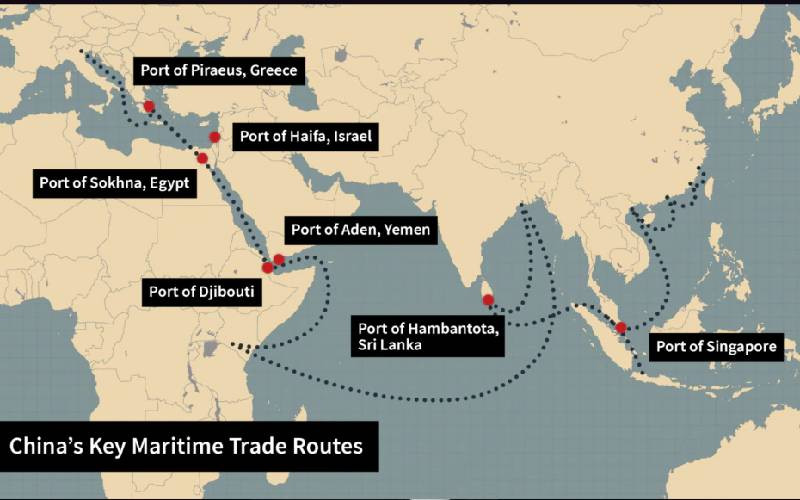×
The Standard e-Paper
Kenya’s Boldest Voice

China has constructed numerous ports, bridges and other coastal projects throughout the developing world in recent years in what's been dubbed by Beijing the "21st Century Maritime Silk Road" - part of President Xi Jinping's greater Belt and Road Initiative to build infrastructure.